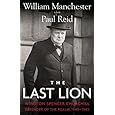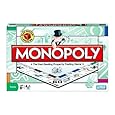How to overcome a great man
Collegiate refers to one of the difficult issues of computing. And where you can order your game Monopoly Alan Turing. Professor
S.Barry Cooper
continues his series of guest blogs on Alan Turing Year
Sixty years ago, the computer genius Alan Turing used to play Monopoly with a young William Newman, son of the eminent mathematician Max Newman, Manchester. It is played on a special board to the hand schoolboy William, and - surprisingly - William won
A 2012
to be beautiful! Alan Turing Special Edition Monopoly raise funds for Bletchley Park.But if Turing was a genius, how he lost a monopoly school? Well, as the saying goes: "Nothing in life is certain." Nearly 80 years ago, it was something Alan Turing proved true - predicted unpredictability in his famous article in 1936, when he wrote was only 23 years old. Even before real life computers - Turing machines - were built, Turing predicted that his team will not disappoint, and I could not be sure exactly when it would happen Today the computer back to the uncertainty of the insolubility "the problem of the judgment of the universal Turing machine. Turing proved that computers, although very useful, are not as intelligent. Y more complex problems are in fact "incalculable." We can not even reliably predict the weather more than 10 days in advance.
According to the Oxford English Dictionary, the first use of "incompressible word dates back to 1606. The uncertainty that is familiar to us from the early days, but the word "computable" appeared over a relatively late discovery of the true nature of incomputability, Turing spent much of his life fighting against the dangerous beast .
Unfortunately, he died at the end (with the help of the authorities of the United Kingdom), in spite of all the work you put in at Bletchley Park and Manchester decode the information hidden in the world .
time Turing was left with only doctoral Robin Gandy, after resigning from his professorship at the University of Manchester and moved to Oxford. (The first time I heard Robin Manchester in 1968, shortly after he had lost his license to drive his car in front of a fish and chip shop, but also cycling, and had a little of "Toad of Toad Hall" on it). Gandy spoke to Alan Turing, a few days before his death in Wilmslow home of cyanide poisoning. I asked him why his friend and master had taken his life. Robin looked away, and said: "Some things happen for no reason." Robin died in 1995.
Andrew Hodges called his book on Turing
The riddleIn physics, we now know a lot about quantum mechanics, relativity, and the origins of the universe. But still do not know how the universe "estimated" the laws of nature or the exact values ??of the physical constants needed to work in theoretical physics. Albert Einstein regretted it, and also did not like the randomness of quantum mechanics contains. "God does not play dice", his famous proclamation., referring to how they can "calculate" the internal reality of Alan Turing. My speech at the 2004 meeting in Manchester on the 50th anniversary of Turing's death was called "The Alan Turing incalculable." A good piece of incomputability in this case, the alarm was fire broke out in the final interview, it was the work of Turing on the emergence of patterns in nature: speaker Jonathan Swinton bravely finished his presentation on the concrete steps outside the public around in a big circle, tending to see the photos of sunflowers and zebra stripes on the handheld.
Turing was fascinated by quantum unpredictability throughout his life, and sat on the presentations by the discoverer of antimatter and Nobel laureate Paul Dirac in Cambridge. Of course, no such thing as complete chance. But incomputability may seem unlikely.
Find best price for : --Dirac ----Paul
----Paul ----Nobel
----Nobel ----Robin
----Robin ----Manchester
----Manchester ----Universal
----Universal ----Park
----Park ----Bletchley
----Bletchley ----Google
----Google ----William
----William ----Monopoly
----Monopoly ----Turing
----Turing ----Alan
----Alan --
--
No comments:
Post a Comment